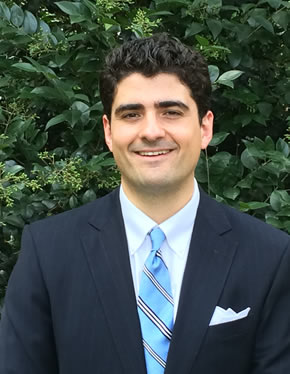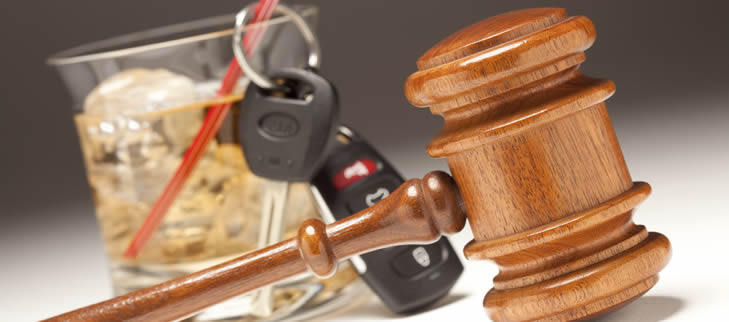3 Differences between a Criminal Case and a Civil Case

3 Differences Between a Criminal Case and Civil Case
The justice system in the United States is extremely complex, and thus can be very confusing for those without legal experience. From the copious paperwork, to finding the right DC personal injury lawyer with sound qualifications, our legal system can be quite overwhelming. To help break down our legal system, we categorize it into two basic elements: criminal and civil court. These entities are similar in that they are both run under state and/or federal guidelines. But these two court systems are also very different, serving different functions and having a variety of distinctions. There are three major differences between a criminal case and a civil case:
1) Means of Punishment
There’s a variety of punishments that may occur in criminal cases, such as jail time and government fines or penalties. Guilty parties may also have to follow certain requirements at the risk of facing jail time, or might instead be placed on probation. Charges are classified as felonies or misdemeanors; misdemeanors are less serious, whereas felonies are more severe.
Unlike criminal cases, defendants do not face the risk of jail time in civil cases; instead, they usually pay monetary damages to compensate the victim with financial resources. Also, courts may call for punitive damages if the defendant acted with malice or intent, as these damages require a lot more money from the defendant.
2) Proving Fault
The burden of proof falls upon the plaintiff in the majority of criminal cases. From the court’s perspective, defendants are presumed innocent until the opposing party demonstrates enough evidence – beyond a reasonable doubt – to overturn that assumption. While it may be challenging to determine the threshold for reasonable doubt, the burden is intended to be substantial. However, this heavy burden does have some exceptions, such as claims involving self-defense.
Courts analyze the preponderance of evidence in civil cases. This means that more than half of the plaintiff’s evidence proves or demonstrates that the defendant is at fault.
3) Suits versus Charges
The defendant is brought to court by a government entity, federal or state, in criminal cases. On the other hand, individuals, businesses, or other non-government entities can bring a suit against a defendant in civil cases. Interestingly, an event might be considered to be both civil and criminal. For example, a defendant who murdered someone will face criminal charges, but this defendant might also face a wrongful death suit to compensate the victim’s family for the loss of a loved one.
While criminal charges can only be brought by a government entity, other individuals might play a part in these events. For example, if a victim does not want to press criminal charges, a governmental entity may also decline to press criminal charges, but this victim cannot prevent the government from pressing charges if the government wishes to do so.
If you are faced with a civil or criminal case, it will likely be beneficial to seek legal representation. An experienced attorney can help determine your best course of action, so contact a legal professional today.
Thanks to our friends and contributors at Cohen and Cohen, P.C., for their insight into the difference between civil and criminal defense.
The Effect of a Criminal Arrest on a Government Security Clearance

A security clearance is necessary for many employees of the federal government, and millions of private contractors working with federal government, so as to protect classified information that they may be privileged to access. For obvious reasons, the federal government is very careful about who they grant security clearances to, and the ability to receive and keep a security clearance can often be the deciding factor between qualified candidates for a government job. The guidelines for who can and can’t receive a security clearance are set by the Department of Defense in Directive Number 5220.6, which was issued in 1992 and extends to almost every other federal agency by mutual agreement. The directive contains several guidelines by which a person receiving a security clearance must be judged. These guidelines are also expected to be followed for as long as the security clearance is held, or else it can be revoked.
Most of the guidelines outlined in Directive Number 5220.6 are fairly simple and expected. The very first three, Guidelines A through C, are unquestionable allegiance to the United States, preference to no other country, and lack of immediate family in foreign countries. As confidential information can be of high value to other countries, these more patriotic guidelines act as a primary buffer to keep the secrets of the United States in the United States. There are other guidelines that analyze behaviors such as sexual misconduct, deceptiveness, honesty, alcoholism, mental health, and the financial stability of applicants for security status so as to ensure that those with security clearance are trustworthy and less likely to commit a crime or be manipulated by enemies of the United States.
Then there are the guidelines involving actually committing crimes. Guideline J states that an applicant is disqualified from receiving a security clearance if there has been any allegation or admission of, “a single serious crime or multiple lesser offenses,” regardless of whether the applicant was formally charged. Though this is a very strict standard, the guideline does allow for wiggle room. The applicant may still be granted clearance if they were acquitted of the charge, or if they can prove that it was not representative of them as a person. The ways in which the applicant can prove the latter include that they were forced to commit the crime, that the crime was not recent, that the crime was an isolated incident, or that they have been rehabilitated. Trying to prove these factors can be very difficult though, and conviction of a felony crime can often mean the end of all chances for receiving a security clearance.
Illegal drug use is a specifically identified crime that can very quickly end a bid for security clearance. According to Guideline H, any illegal drug abuse, possession, or cultivation is grounds for immediate disqualification. However, this guideline is not in place to punish those who use drugs but rather to ensure that people in possession of classified information are able to protect that information. Past drug use can be disregarded as long as the applicant is able to prove that they have rehabilitated, and have no intention to abuse any drugs in the future. That being said, discovery of any drug abuse after receipt of a security clearance will result in immediately losing that clearance, and most likely your job.
When you take a job with a security clearance, these become the guidelines that you must live by if you plan to keep your job. If at any time the agency you work for finds that you have committed a crime or are abusing drugs, then it very likely will cost you your job. That goes double if you are convicted of either. When it comes down to it, a security clearance is a privilege that comes after proving that you can be trusted to protect the secrets of the United States, and it is not a privilege that is earned easily.
Dekalb County Criminal Procedure
This article is a good picture on criminal procedure after arrest but before indictment:
Rapper Young Thug waived Monday morning his preliminary hearing in DeKalb County court, Channel 2 Action News reported.
The rapper, whose real name is Jeffery Lamar Williams, was scheduled to be in court following his July 15 arrest on charges including terroristic threats. He is accused of threatening a security guard at Perimeter Mall on July 7.
During a preliminary hearing, authorities outline their initial case against a defendant and a magistrate judge decides if there is sufficient evidence for the case to proceed to superior court. The case also proceeds if a defendant waives their hearing.
Following Williams’ arrest, local police and the Federal Bureau of Investigation served search warrants at his Sandy Springs home, leading to additional marijuana, cocaine and weapons charges against the rapper. Those charges were filed in Fulton County.
Williams was also recently named in an indictment linking him to the April shooting of rapper Lil Wayne’s tour buses. Although Williams has not been charged in the incident, his tour manager Jimmy Winfrey was indicted on 30 charges.
Williams is best known for his 2013 single “Stoner” and is a member of Gucci Mane’s Atlanta-based record label.
DUI Defense: Williams v. The State Georgia Supreme Court Holds that Implied Consent Is Not Actual Consent
S14A1625. WILLIAMS v. THE STATE.
HINES, Presiding Justice.
Following a bench trial, John Cletus Williams was convicted of driving under the influence of drugs (“DUI”), OCGA § 40-6-391 (a) (2), and failure to maintain lane,OCGA§40-6-48(1).1 He had moved unsuccessfully to suppress the results of a state-administered blood test2 on the basis that the test, obtained without a search warrant, violated his rights under the Fourth Amendment to the United States Constitution and Article I, Section I, Paragraph XIII of the Georgia Constitution.3 His challenge is that Georgia’s implied consent statute, OCGA § 40-5-55,4 is unconstitutional as applied in his case because consent obtained solely under the statute does not amount to voluntary consent for purposes of the Fourth Amendment and the related provision of the State Constitution.5 For the reasons that follow, we vacate the judgments of the state court and remand the case to that court for reconsideration of Williams’s motion to suppress and any consequent proceedings.
The transcript of the hearing of the motion to suppress and the immediately following bench trial reveal the following facts, which were either stipulated at trial or are not in dispute. On September 22, 2012, Williams was arrested by an officer of the Gwinnett County Police Department and charged with DUI and failure to maintain lane; the officer had “reasonable articulable suspicion” to stop Williams and probable cause to arrest him. Williams was placed in custody but was not advised of his Miranda6 rights. The officer read Williams the age-appropriate statutory implied consent notice7 and pursuant to it requested that Williams submit to blood and urine tests. The officer told Williams that it was “a yes or no question,” and Williams verbally responded “yes.” There was no other conversation about consent for the testing, i.e., the officer did not ask Williams “if [Williams] was willing to freely and voluntarily give a test.” The officer “read [Williams] the implied consent and that was pretty
6 Miranda v. Arizona, 384 U.S. 436 (86 SCt 1602, 16 LE2d 694) (1966).
7 The applicable implied consent notice for suspects age 21 or over is found in OCGA § 40-5-67.1 (b) (2), and states:
“Georgia law requires you to submit to state administered chemical tests of your blood, breath, urine, or other bodily substances for the purpose of determining if you are under the influence of alcohol or drugs. If you refuse this testing, your Georgia driver’s license or privilege to drive on the highways of this state will be suspended for a minimum period of one year. Your refusal to submit to the required testing may be offered into evidence against you at trial. If you submit to testing and the results indicate an alcohol concentration of 0.08 grams or more, your Georgia driver’s license or privilege to drive on the highways of this state may be suspended for a minimum period of one year. After first submitting to the required state tests, you are entitled to additional chemical tests of your blood, breath, urine, or other bodily substances at your own expense and from qualified personnel of your own choosing. Will you submit to the state administered chemical tests of your (designate which tests) under the implied consent law?”
3
much the end of it.” It “was an ordinary DUI,” there “were no exigent circumstances,” and no search warrant was obtained. Williams was taken to a medical center where blood and urine samples were taken for the purpose of his criminal prosecution.
The state court denied Williams’s motion to suppress his blood test,8 expressly rejecting the “reasoning” that statutory implied consent implicated Fourth Amendment concerns, and the contention that the statutory consent, in and of itself, was not a valid exception to the Fourth Amendment’s requirement of a search warrant. The state court’s analysis is flawed.
A suspect’s right under the Fourth Amendment to be free of unreasonable searches and seizures applies to the compelled withdrawal of blood, and the extraction of blood is a search within the meaning of the Georgia Constitution. Cooper v. State, 277 Ga. 282, 285 (III) (587 SE2d 605) (2003). In general, searches are of two types: those conducted with a search warrant or those undertaken without one, and searches conducted outside the judicial process are per se unreasonable under the Fourth Amendment, subject only to a few
8 Neither Williams’s constitutional challenge in his motion to suppress or his arguments on appeal address his given urine sample, but only the blood test and its results.
4
specifically established and well-delineated exceptions. State v. Slaughter, 252 Ga. 435, 436 (315 SE2d 865) (1984), citing Coolidge v. New Hampshire, 403 U. S. 443, 454-455 (91 SCt 2022, 29 LE2d 564) (1971). Thus, a warrantless search is presumed to be invalid, and the State has the burden of showing otherwise. State v. Slaughter, supra, citing Mincey v. Arizona, 437 U. S. 385, 390-391 (98 SCt 2408, 57 LE2d 290) (1978), and McDonald v. United States, 335 U. S. 451, 456 (69 SCt 191, 93 LE 153) (1948).
The first well-recognized exception to the warrant requirement in the context of a state-administered blood test is the presence of exigent circumstances. The United States Supreme Court in Schmerber v. California, 384 U. S. 757 (86 SCt 1826, 16 LE2d 908) (1966), addressed the Fourth Amendment implications of a warrantless blood draw in a DUI case. The Supreme Court stated it was to determine “whether the police were justified in requiring [the petitioner in that case] to submit to the blood test, and whether the means and procedures employed in taking his blood respected relevant Fourth Amendment standards of reasonableness.” 384 U. S. at 768. The Schmerber court acknowledged that “[w]hile early cases suggest[ed] that there is an
unrestricted ‘right on the part of the [g]overnment . . . to search the person of 5
the accused when legally arrested, to discover and seize the fruits or evidences of crime,’” the “mere fact of a lawful arrest” did not end the inquiry. Id. at 769. This was so because such suggestion was premised on the possibility of “more immediate danger of concealed weapons or of destruction of evidence under the direct control of the accused,” and because once there was a permitted weapons search of the arrested person it would be “both impractical and unnecessary” to achieve the purpose of the Fourth Amendment “to attempt to confine the search to those objects alone.” Id. However, the Court concluded that such considerations had “little applicability with respect to searches involving intrusions beyond the body’s surface,” and that “[t]he interests in human dignity and privacy which the Fourth Amendment protects forbid any such intrusions on the mere chance that desired evidence might be obtained.” Id. at 669, 670. Accordingly, “[i]n the absence of a clear indication that in fact such evidence will be found, these fundamental human interests require law officers to suffer the risk that such evidence may disappear unless there is an immediate search.” Id. at 770. The Court reasoned that inasmuch as “[s]earch warrants are ordinarily required for searches of dwellings,” there could not be a lesser requirement intheinstanceof“intrusionsintothehumanbody,”butnotedthis 6
was so “absent an emergency.” Id. It then concluded that the officer in the case might reasonably have believed that there was an emergency, in the sense that the delay involved in obtaining a search warrant threatened the destruction of evidence, the threat and exigent circumstance being the diminishment of the concentration of alcohol in the blood shortly after the cessation of drinking as the body eliminates it from the system. Id. Also noting that in that case, time was taken to bring the accused to a hospital and to investigate the accident scene, the Court concluded there was no time to secure a warrant, and given the “special facts,” the blood draw “was an appropriate incident to petitioner’s arrest.” Id. at 771. Thus, Schmerber established the legal nexus between the transient and dissipating nature of an intoxicant in the human body and presence of an exigency for the purpose of securing a blood test without the necessity of a search warrant.
This Court carried such nexus further in Strong v. State, 231 Ga. 514 (202 SE2d 428) (1973), when it determined that in the situation in which there is probable cause to arrest an individual for DUI, the “evanescent nature of alcohol in the blood,” in and of itself, necessitated that the defendant’s blood sample be extracted in order “to prevent a failure of justice from a certain disappearance
7
of this evidence.” Id. at 518. In other words, the dissipation of the intoxicant in the body automatically, as a matter of law, provided the exigency for a warrantless blood test incident to the arrest. However, prior to the bench trial and the denial of the motion to suppress in Williams’s case, the United States Supreme Court issued its decision in Missouri v. McNeely, 569 U. S. ___ (133 SCt 1552, 185 LE2d 696) (2013), in which it rejected a per se rule that the natural metabolization of alcohol in a person’s bloodstream constitutes an exigency justifying an exception to the Fourth Amendment’s search warrant requirement for nonconsensual blood testing in all DUI cases. 569 U. S. ___ (133 SCt at 1556). Instead, it concluded that,
while the natural dissipation of alcohol in the blood may support a finding of exigency in a specific case, as it did in Schmerber, it does not do so categorically. Whether a warrantless blood test of a drunk-driving suspect is reasonable must be determined case by case based on the totality of the circumstances.
Id. at 1563. Thus, to the extent that Strong v. State holds otherwise, it is hereby overruled. In the present case, there is no dispute that there were no exigent circumstances. Consequently, the analysis in this case must then focus on the voluntary consent exception to the warrant requirement because it is well settled in the context of a DUI blood draw that a valid consent to a search eliminates the 8
need for either probable cause or a search warrant. Cooper v. State, supra at 291 (VI), citing Schneckloth v. Bustamonte, 412 U. S. 218, 219 (93 SCt 2041, 36 LE2d 854) (1973).
As noted, it is uncontroverted that Williams submitted to the blood test after the police officer read him the implied consent notice for suspects age 21 or over. However, in Cooper v. State, supra, this Court plainly distinguished compliance with the implied consent statute from the constitutional question of whether a suspect gave actual consent for the state-administered testing. We emphasized such remaining question in regard to the validity of the consent, confirming that “[w]hen relying on the consent exception to the warrant requirement, the State has the burden of proving that the accused acted freely and voluntarily under the totality of the circumstances.” Cooper v. State, supra at 291 (VI), citing, inter alia, Bumper v. North Carolina, 391 U. S. 543 (88 SCt 1788, 20 LE2d 797) (1968).9 And, it can certainly be argued that the need for
9 In Cornwell v. State, 283 Ga. 247 (657 SE2d 195) (2008), this Court stated that inasmuch as there was probable cause for Cornwell’s arrest for DUI and the State had complied with statutory implied consent requirements, Cornwell could not complain that the state-administered urine test for the presence of alcohol and drugs violated his State and Federal Constitutional rights to be free from unreasonable searches and seizures; therefore, his motion to suppress was properly denied. Id. at 249 (2). However, such statement was in direct response to Cornwell’s argument that the implied consent statute was unconstitutionally applied to him because it permitted warrantless compelled testing of his bodily fluids without proof of the existence of exigent circumstances. Our
9
the State to demonstrate actual consent for the purpose of exception to the warrant requirement and its constitutional implications is reinforced by the analysis of the United States Supreme Court in McNeely.
The facts of McNeely did not lend themselves to the Supreme Court expressly addressing the issue of a suspect’s consent to the testing of bodily fluids as satisfying Fourth Amendment concerns because the defendant in that case refused to consent to a blood test, McNeely, 569 U. S. ___ (133 SCt at 1557); however, a plurality of the Court was plainly rejecting a per se rule for sustaining an exception to the Fourth Amendment’s requirement of a search warrant in favor of a case-by-case assessment based on the totality of the circumstances, albeit in the narrow context of exigency. Id. at 1563. Nevertheless, sister states have considered statutory implied consent as an exception to the Fourth Amendment’s warrant requirement in the wake of McNeely, and have reached varying conclusions as to whether McNeely governs that issue; but, what the cases seem to indicate is that mere compliance with statutory implied consent requirements does not, per se, equate to actual, and
determination, in no manner, intended to blur the distinction between implied consent and actual consent for the purpose of Fourth Amendment analysis.
10
therefore voluntary, consent on the part of the suspect so as to be an exception to the constitutional mandate of a warrant. See, e.g., People v. Harris, ___ Cal.Rptr.3d ___, 2015 WL 708606 (Cal App. 4 Dist. 2015); Weems v. State, 434 SW3d 655 (Tex. App. 2014); State v. Padley, 354 Wis.2d 545 (849 NW2d 867) (Wis. App. 2014); State v. Moore, 354 Or. 493 (318 P3d 1133) (Or. 2013); State v. Brooks, 838 NW2d 563 (Minn. 2013). See also Cooper v. State, supra at 291 (VI).
As the Wisconsin Court of Appeals aptly observed in Padley:
“Implied consent” is not an intuitive or plainly descriptive term with respect to how the implied consent law works. . . . [It may be] a source of confusion. . . . [T]he term “implied consent” [may be] used inappropriately to refer to the consent a driver gives to a blood draw at the time a law enforcement officer requires that driver to decide whether to give consent. However, actual consent to a blood draw is not “implied consent,” but rather a possible result of requiring the driver to choose whether to consent under the implied consent law.
State v. Padley at 564.
In considering Williams’s motion to suppress, the state court failed to
address whether Williams gave actual consent to the procuring and testing of his blood, which would require the determination of the voluntariness of the
11
consent under the totality of the circumstances. Consequently, the judgments of the state court are vacated, and the case is remanded to that court for proceedings consistent with this opinion.
Judgments vacated and case remanded with direction. All the Justices concur.
Decided March 27, 2015.
OCGA § 40-5-55; constitutional question. Gwinnett State Court. Before
Judge Iannazzone.
Lance W. Tyler, for appellant.
Rosanna M. Szabo, Solicitor-General, Joelle M. Nazaire, Shane R.
McKeen, Assistant Solicitors-General, for appellee.
12
Decatur Police Department Investigates Vehicular Homicide

On Tuesday, May 12, 2015, Scott Boulevard will be closed between Clairemont Avenue and Coventry Road from 9:30 am to approximately 11:30 am for an accident reconstruction.
You can get more info on the deadly vehicle accident that occurred on Scott Boulevard on April 25th here.
Criminal Defense Dekalb County: Dekalb District Attorney’s Office Seeks Death Penalty for Decatur Murders

The Dekalb District Attorney’s Office announced they would seek the death penalty for Aeman Presley for two murders in the city of Decatur and unincorporated Dekalb County. Mr. Presley is indicted and arrested by Dekalb County authorities for murders that appear to have no clear murder or prior relationship. Aeman Presley is also facing murder indictments from the Fulton County District Attorney’s Office for related murders that occurred in metropolitan Atlanta.
DUI Drugs: NHTSA Study Driving Stoned is much safer than driving drunk
A recent study released by National Highway Traffic Safety Adminstration NHTSA shows that drivers who use marijuana are no more likely to wreck than a sober driver. The state of Georgia criminalizes driving under the influence of drugs. It is a separate and distinct crime from DUI alcohol. To see more about Georgia’s DUI laws click here.
If you are facing a DUI alcohol or drugs charge click here for help.
Sex Crimes: City of Johns Creek Performs Massive Sex Crime Sting

The City of Johns Creek Police Department relapsed news they arrested numerous prostitutes, pimps, and johns in a planned sting. The Department placed false ads on the site Backpage. When persons responded to the ads the Police Department charged them.
Hit and Run Driver Arrested and Charged in Decatur Municipal Court
Decatur Police charged a local man in a Hit and Run in Decatur occurring earlier this year. To see more from Decatur Metro click here. Hit Run is a serious traffic offense. Generally speaking the repercussions for this charged is jail time, usually around ten days, a license suspension, probation, and in any civil litigation Defendant’s are subject to a punitive damage, award in addition to any other civil claims from a general car wreck. To review the Official Code of Georgia for your self click here.
If you are facing serious criminal charges click here for help.
Tragedy and Legal Consequences of Driving Under the Influence

The AJC reported, on the the December 13, 2013 tragedy involving a newly married couple leaving their wedding. The driver of the car wrecked and killed his bride only hours after marrying her while under the influence of alcohol. The driver pled guilty to felony vehicular homicide. The Defendant was sentenced to 15 years, the first two to three months in jail, and sentenced to probation after release. In addition he was classified a habitual violator by the Department of Driver Services and is barred from having a driver’s license for at least five years.



